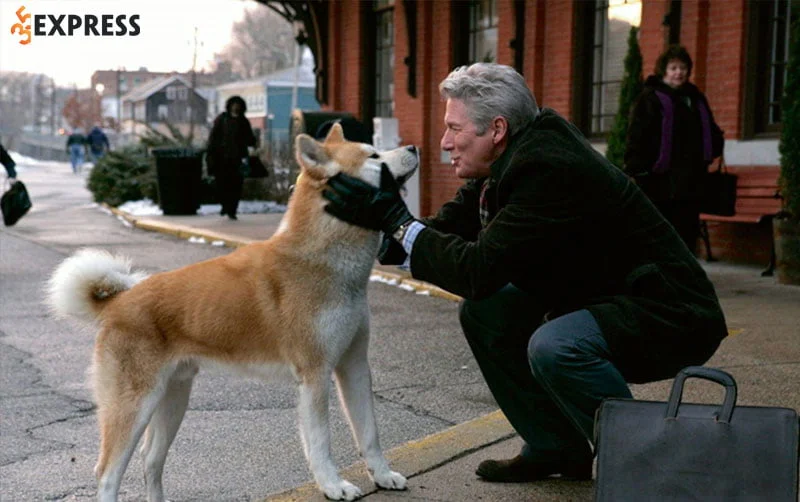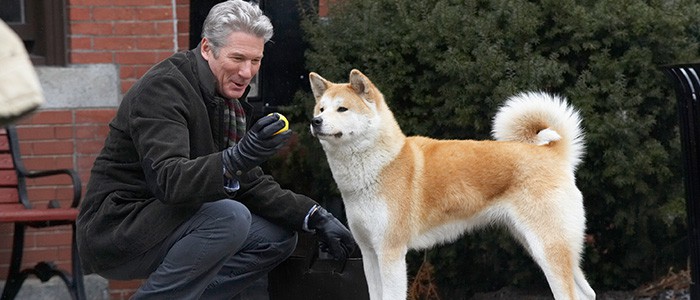Unconditional Loyalty: The Enduring Legacy of Hachi: A Dog’s Tale

Unconditional Loyalty: The Enduring Legacy of Hachi: A Dog’s Tale
Hachi: A Dog’s Tale (2009), directed by acclaimed Swedish filmmaker Lasse Hallström, is a profoundly moving drama that captures the essence of loyalty, love, and the remarkable bond between a dog and his human companion. Inspired by the true story of Hachikō, a legendary Akita dog in Japan, the film adapts this emotional tale to an American setting while preserving the heart and soul of its message. Starring Academy Award-nominated actor Richard Gere as Professor Parker Wilson, the story unfolds with sincerity and quiet power, leaving a lasting impression on viewers of all ages.
The film begins when Parker Wilson, a kind-hearted music professor, finds an abandoned Akita puppy at the train station on his way home from work. Despite initial resistance from his wife Cate (played by Joan Allen), Parker chooses to take the puppy in and names him Hachi. The dog’s name derives from the Japanese word for “eight” (hachi), symbolizing good fortune. As the days pass, a deep and inseparable bond forms between Parker and Hachi, built on mutual affection and quiet companionship.
Hachi’s daily ritual soon becomes a symbol of their connection: every morning, he walks Parker to the train station and returns in the afternoon to greet him after work. This routine continues until tragedy strikes. One day, Parker suffers a fatal cerebral hemorrhage while teaching, and never returns home. In a heartbreaking display of loyalty, Hachi continues to wait at the station every day, at the exact time Parker’s train used to arrive. Rain, snow, or sunshine—Hachi sits and waits. His vigil lasts for nearly ten years, touching the hearts of commuters, townspeople, and eventually the entire nation.
What makes Hachi: A Dog’s Tale so powerful is its simplicity. The film doesn’t rely on dramatic dialogue or action-packed sequences. Instead, it captures quiet, emotional moments that reflect the depth of human-animal relationships. Richard Gere delivers a subtle and heartfelt performance, portraying Parker Wilson with warmth and humility. The film’s minimalist style, accompanied by Jan A.P. Kaczmarek’s delicate musical score, enhances the emotional weight without overwhelming the viewer.
The story of Hachi resonates on multiple levels. It speaks not only to the unwavering loyalty of a pet but also to the impact that love and devotion can have on an entire community. Over the years, Hachi becomes a fixture at the station, drawing attention from those around him and inspiring stories in newspapers. Ultimately, a statue is erected in his honor—a testament to the bond that never broke, even in death.
The real-life Hachikō lived in Tokyo in the 1920s and 30s, waiting for his owner, Professor Ueno, at Shibuya Station for nine years after his master’s death. Today, Hachikō is a national symbol of loyalty in Japan, with a bronze statue standing at Shibuya Station, still a popular meeting spot for locals and tourists alike.
Hachi: A Dog’s Tale is more than just a film—it is a tribute to the idea that true love and loyalty are timeless. Its universal themes transcend language and culture, reminding us of the silent, steadfast devotion that pets offer their humans. Since its release, the film has earned a cherished place in the hearts of animal lovers around the world, and continues to move audiences to tears with its gentle yet powerful storytelling.
Whether you are a pet owner or simply someone who values the quiet strength of loyalty, Hachi: A Dog’s Tale is a cinematic experience that stays with you long after the credits roll. It is a gentle reminder that sometimes, the truest form of love is one that waits—patiently, faithfully, and without end.











